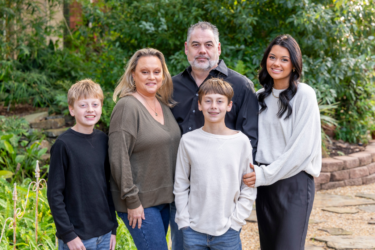The sound of the last school bell before summer break leads to warm feelings of nostalgia for many of us. Sure, part of it was the fact we did not have to wake up early and spend all day in class, but the memories made during those sunny months make up a huge chunk of our childhood.
Because of COVID, the opportunities for children to make connections and new friends are limited. Attending in-person schooling has been a stop and start situation, and social distancing is still the best approach to limiting the spread of the Coronavirus. However, we are beginning to see the light at the end of the tunnel, and reconnecting has never been more critical.
SOCIALIZATION AND SUMMER CAMP
Before the pandemic, over 20 million children attended some sort of camp every summer. The 2020 season saw a huge but expected drop in attendance. It is the hope that with new CDC guidance and additional measures to ensure safety, that our children will spend 2021 reconnecting and making lifelong memories.
Experts and studies have made it clear that the last year has taken its most considerable toll on the youngest among us. While online schooling is becoming more efficient, it can never fill the void that the lack of face-of-face interactions leaves. However, academics is also just one piece of that.
Registered Play Therapist Amanda H. Chapoton, LPC-S, LMFT, explains the importance of in-person interactions. “Children communicate and express their emotions through play at all ages, so isolation has proven to have a huge impact on the increase of depression and anxiety in our kids.”
For school-aged children, they learn social skills and expectations from their peers. It is how they develop empathy and hone their communication skills. During quarantine, some students have fallen behind in their studies, as well as their social progression and their milestones.
Childhood professionals point out that children of all ages suffer from self-esteem issues at some point. It is not only about receiving validation from kids their age. Summer camp offers unique opportunities for them to learn independence–leading teams, choosing meals, and making their own adventure schedule. It goes a long way towards a little person’s self-worth when they realize they can do things without you.
Summer camps work for many families because they offer a balance of fun activities and opportunities to develop and expand social skills. Kids need the interaction that only comes when they are with their peers. Small groups, large groups, and one-on-one activities give them the diversity they crave while providing them with a safe environment to thrive.
OPTIONS FOR ALL AGES
Summer camp does not necessarily mean sleep away camp. Many children do not like spending the night away from home during the best of times. The various options out there make it easier for parents to find the right environment for their child of every age–sports camps, religious summer camps, gender-specific camps, etc.
Every age group benefits from summer camp for different reasons. Generally, the youngest camp goers (ages five-eight) only attend during the daytime hours. Kids are discovering their unique personalities at this age, which include interests, talents, and self-awareness.
At around nine years old, our children start to learn they can do things without their parents. It is an exciting time in their lives, and it is not always easy for parents to let them discover lessons on their own. However, not only do camp counselors supervise and keep them safe, they are there to help demonstrate positive behavior and reflect good moral values.
Camp Director Andrew Vincent with Twin Lakes Summer Camp explains, “This group (ages 6-12) likely benefit more from the relational aspects of the counselor/camper relationship. The counselor serves as a positive mentor who can speak into their life, guiding them toward understanding the importance of good friendships and sound decision making.”
When it comes to faith-based camp programs for teenagers at Twin Lakes Summer Camp, Vincent continues, “Our Leader in Training campers (ages 13-15) thrives in the camp setting by being given practical responsibilities alongside our summer staff. Being treated more
as an adult, rather than a camper, and being welcomed for who they are is highly important to this group.”
Regardless of the type of camp or the age group, the common element across all age groups is personal development and human interaction.
The last year has been challenging for all of us, and this summer is a chance for our children to overcome the setbacks they have experienced and make new connections with other children who are just like them.
LONG-LASTING BENEFITS OF SUMMER CAMP
We know that self-esteem issues are the cause of a lot of stress and anxiety. For children, poor self-image leaves long-lasting effects. Summer camp can help foster a healthy self-image in significant ways.
Kids already spent too much time staring at screens before the Coronavirus. Now, Zoom is how students are attending class and meeting up with friends and family. Socializing online does not equal real-life interactions. Summer camp is a great way to balance their attention between the computer and the great outdoors.
Vincent sums up why this summer is so important. “The loss of connection has significantly impacted everyone, and our physical and mental health has suffered because of it. Children, however, have likely taken the blow harder than most. With school closures last spring, canceled or modified athletics, reduced recreation, and limited gatherings, kids have lost out on so many opportunities to connect with their peers. The camp environment naturally puts people together, focusing on relationship building, by allowing kids to form and develop new friendships with other kids while centered around the common element of fun.” ■





